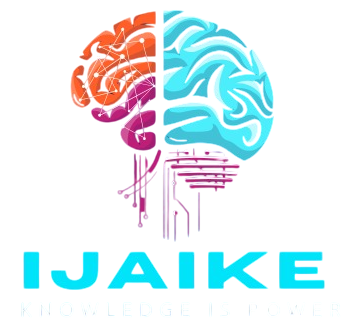Call for Papers- Inaugural Issues

As technology advances, our products—such as wireless devices, computers, and tablets—are becoming smarter while simultaneously shrinking in size. This transformation is largely driven by the integration of Artificial Intelligence (AI) and Knowledge Engineering (KE), enabling products to exhibit intelligent features, automated processes, and adaptive behaviors.
Across research communities, ongoing debates emphasize the critical role of AIKE in shaping the future of smart factories. Traditional product development approaches have evolved into knowledge-based engineering, Internet of Things (IoT)-enabled systems, and AI-driven frameworks, unlocking applications in sectors beyond manufacturing and economics, including education, urban planning, governance, healthcare, and business management.
Today, organizations in the U.S. and worldwide are increasingly adopting AI and Knowledge Engineering methodologies, tools, and frameworks to drive strategic innovation, improve collaborative product development, and enhance global competitiveness.
The International Journal of Artificial Intelligence & Knowledge Engineering (IJAIKE) invites high-quality original research papers, review articles, and case studies for publication in its inaugural issues. As a peer-reviewed, open-access journal, IJAIKE is committed to advancing the frontiers of AI and knowledge engineering by providing a platform for innovative, interdisciplinary, and impactful research.
We welcome submissions from academic researchers, industry practitioners, and policy experts working at the intersection of intelligent systems, data-driven innovation, and knowledge-based technologies.
Scope of the Paper Contents
We invite submissions exploring new research and advancements in AI and Knowledge Engineering to optimize competency capture, knowledge-driven automation, and intelligence-based skill application in product development and life-cycle management.
Core Topics in Artificial Intelligence
- Machine Learning & Deep Learning
- Natural Language Processing (NLP)
- Computer Vision & Image Understanding
- Reinforcement Learning & Autonomous Agents
- Explainable AI (XAI) & Trustworthy AI
- Generative AI & Foundation Models
- AI Ethics, Fairness, and Bias Mitigation
- AI for Edge, IoT, and Embedded Systems
- Multi-agent Systems & Swarm Intelligence
- AI in Robotics and Human-Robot Interaction
Knowledge Engineering & Representation
- Ontologies, Semantic Web, and Knowledge Graphs
- Knowledge Acquisition, Modeling, and Reasoning
- Rule-Based Systems & Expert Systems
- Intelligent Decision Support Systems
- Cognitive Architectures & Symbolic AI
- Hybrid AI (Symbolic + Sub-symbolic Integration)
- Knowledge Discovery in Databases (KDD)
- Automated Planning & Problem Solving
- Commonsense Reasoning & Contextual Intelligence
Applied AI & Emerging Domains
- AI in Healthcare, Biomedicine, and Genomics
- AI for Smart Manufacturing & Industry 4.0
- AI in Education, Learning Analytics, and EdTech
- AI for Urban Planning, Smart Cities, and Sustainability
- AI in Finance, Law, and Governance
- AI for Climate Modeling and Environmental Monitoring
- AI in Cybersecurity and Threat Detection
- AI for Creativity, Art, and Design
- AI in Social Good and Humanitarian Applications
Knowledge Engineering in Practice
- Knowledge-Based Product Development
- Intelligent Process Planning & Optimization
- Knowledge Engineering for Digital Twins
- AI-Driven Innovation in Supply Chains
- Knowledge Management in Organizations
- AI for Scientific Discovery and Research Automation
- Methodologies, Emerging architectures, and Frameworks
- Case Studies and Experimental Research.
We welcome theoretical papers, empirical studies, critical reviews, case studies, and experiential research exploring the state-of-the-art innovations in AI and Knowledge Engineering.

Paper Submission Guidelines
Authors are encouraged to review the Author Submission Guidelines before submitting. Manuscripts must be original, unpublished, and not under consideration elsewhere. All submissions to the inaugural issues will undergo a rigorous double-blind peer review process, with authors receiving decisions within 3 to 6 months. The final paper selection will be based on originality, relevance, long-term reference value, and quality of presentation.
Important Notes
- Open Access: All accepted papers will be published under open-access terms, ensuring global visibility and citation potential.
- Flexible APC Model: APC is calculated based on the size and complexity of the final formatted manuscript. See APC Detailsfor more information.
- Waivers Available: IJAIKE offers APC waivers for eligible authors from low-income regions or early-career researchers.
Submission Portal
- Manuscripts should be submitted via the Clarivate ScholarOne Manuscript Central Submission portal at https://mc04.manuscriptcentral.com/jaike
Submission Requirements: https://ijaike.org/submission-requirements/
Journal Website: http://IJAIKE.ORG
Submit your manuscript through the online submission system.


